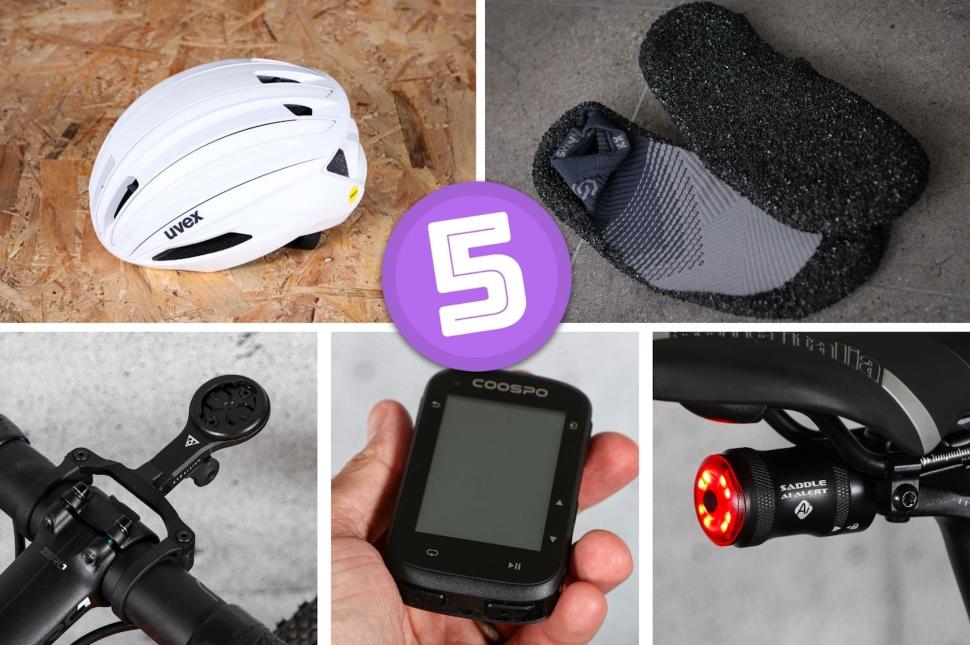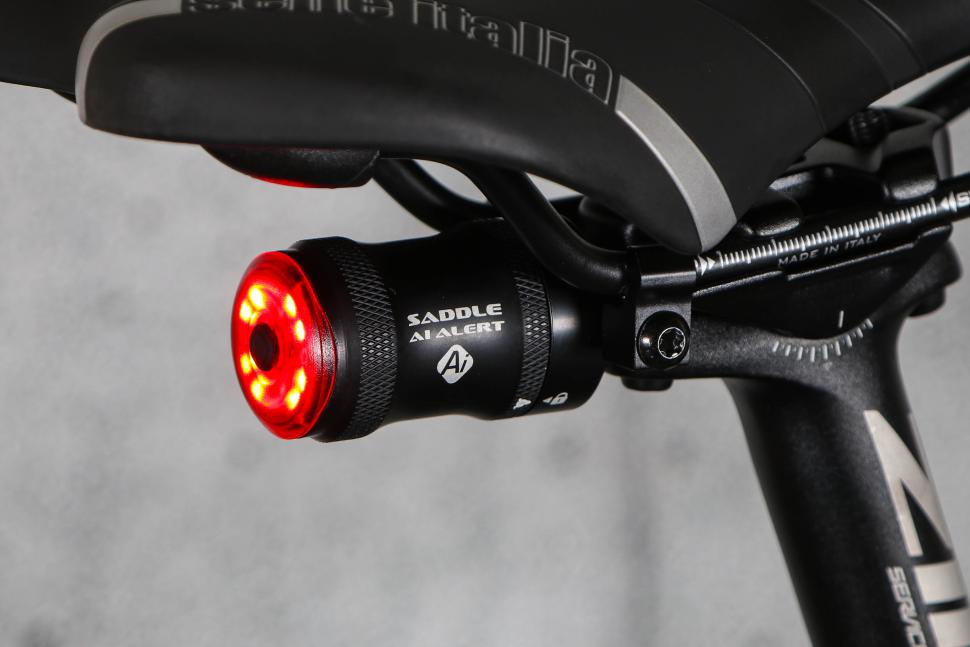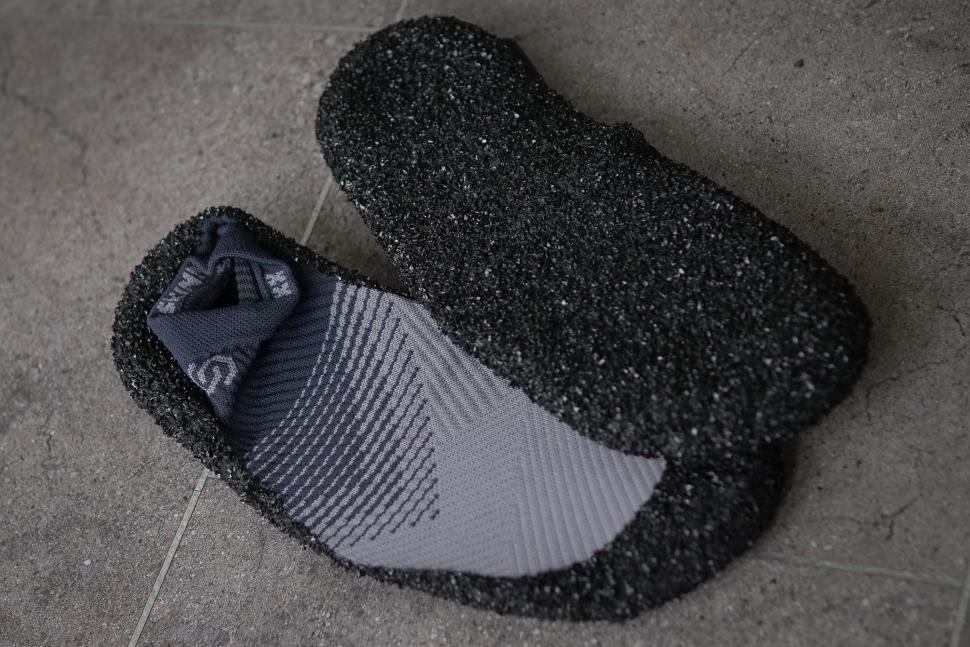- News
- Reviews
- Bikes
- Components
- Bar tape & grips
- Bottom brackets
- Brake & gear cables
- Brake & STI levers
- Brake pads & spares
- Brakes
- Cassettes & freewheels
- Chains
- Chainsets & chainrings
- Derailleurs - front
- Derailleurs - rear
- Forks
- Gear levers & shifters
- Groupsets
- Handlebars & extensions
- Headsets
- Hubs
- Inner tubes
- Pedals
- Quick releases & skewers
- Saddles
- Seatposts
- Stems
- Wheels
- Tyres
- Tubeless valves
- Accessories
- Accessories - misc
- Computer mounts
- Bags
- Bar ends
- Bike bags & cases
- Bottle cages
- Bottles
- Cameras
- Car racks
- Child seats
- Computers
- Glasses
- GPS units
- Helmets
- Lights - front
- Lights - rear
- Lights - sets
- Locks
- Mirrors
- Mudguards
- Racks
- Pumps & CO2 inflators
- Puncture kits
- Reflectives
- Smart watches
- Stands and racks
- Trailers
- Clothing
- Health, fitness and nutrition
- Tools and workshop
- Miscellaneous
- Buyers Guides
- Features
- Forum
- Recommends
- Podcast
TECH NEWS
 FiveCoolThings-2024-10-14
FiveCoolThings-2024-10-14Sick of duck-walking around in cycling shoes? The barefoot-style sock/shoes said to be ideal for bikepacking adventures, plus cool stuff from Uvex, Lezyne, Topeak + Coospo
This week's edition of Five Cool Things feature an AI-powered rear brake light, comfy shoes (or are they socks? Who knows) from Skinners, an adjustable bike computer mount from Topeak, a two-in-one helmet from Uvex and another new sub-£100 bike computer from Coospo.
Here are the key details before our full reviews are published on road.cc in the coming weeks. If you're looking for the highest-rated products, be sure to visit road.cc recommends, where we’ve compiled all our top-rated reviews in one convenient location.
Lezyne Saddle AI Alert 250 Rear Light (£75)
Lezyne's Saddle AI Alert 250 integrates the bang on-trend thing that is Artifical Intelligence into a rear bike light, with Lezyne boasting it is "the most accurate cycling brake light on the market".
It's designed to automatically detect when you're braking, switching to the 250-lumen 'brake light' flash mode, known as Active Alert, which aims to signal your actions to drivers and other cyclists. Brake detection in rear bike lights isn't exactly a new thing, but we'll await our reviewer's take on why Lezyne reckons their AI-powered spin on it is better than the rest.
With a maximum output of 250 lumens, seven different modes and an IPX7 waterproof rating, the light also has a claimed run time of up to 60 hours.
Check back in a couple of weeks to see if the AI features are necessary, and whether Iwein agrees that this is "the future of bicycle light technology".
Uvex Surge Aero MIPS (€249.95)
Developed with riders from Team Intermarché-Wanty, the Uvex Surge Aero MIPS aero road helmet offers refined aerodynamics, plenty of ventilation and maximum protection according to the brand.
It offers a two-in-one design with an aero cover that partially covers the vents, claiming to significantly reduce drag, and when you need more airflow the cover can be taken off.
The helmet is equipped with MIPS (Multi-Directional Impact Protection System) for added protection. It also comes in three colour options: black matte, white matte, and a team edition. It's also available in three sizes, fitting head circumferences from 53cm to 61cm.
Skinners Comfort 2.0 shoes (£53.90)
Is awkwardly walking around in cycling shoes when making a quick stop-off at the cafe about to be a thing of the past? Unless you have faith in this guy's solution, perhaps the Skinners Comfort 2.0 barefoot-style shoes that roll up like socks could work for you.
The Kickstarter-funded socks/shoes promise "ultralight and flexible freedom for your feet – with added ground protection". Featuring a 3mm thick sole and a 2mm insole, they are available in six different colours, and sizes ranging from 36 to 48.
Although they're multi-purpose, we're promised that the Comfort 2.0 could be a practical addition for stashing in your luggage on bikepacking or touring adventures, as they take up less space than traditional footwear. Dave is currently deciding if they're any good for this application, so check back in a couple of weeks to find out...
Topeak UTF Multi-Mount Pro for handlebar (£47.99)
The Topeak UTF Multi-Mount Pro for handlebars is designed for mounting cycling computers and front lights. It features flip-flop positioning with an adjustable angle of approximately 10 degrees, allowing you to adjust the height of your device.
The mount fits handlebars with diameters ranging from 25.4mm to 31.8mm and is compatible with Garmin, Wahoo, Sigma GPS and Bryton cycling computers, as well as Topeak front lights.
Coospo Realroad CS500 GPS Bike Computer (£99)
The Coospo Realroad CS500 GPS Bike Computer is a mid-range device featuring a new interactive interface and a more intuitive data display, claim the brand.
Equipped with GPS and turn-by-turn navigation, it offers customisable display options and advanced training metrics. The bike computer has a 2.6-inch anti-glare LCD screen with nine pages and over 140 data types for personalisation. Additionally, it supports both Bluetooth and ANT+ connectivity.
For all the latest road.cc reviews, head over to our reviews section. If you want some more advice before splashing the cash, check out our buyer's guides.
Emily is our track and road racing specialist, having represented Great Britain at the World and European Track Championships. With a National Title up her sleeve, Emily has just completed her Master’s in Sports Psychology at Loughborough University where she raced for Elite Development Team, Loughborough Lightning.
Emily is our go-to for all things training and when not riding or racing bikes, you can find her online shopping or booking flights…the rest of the office is now considering painting their nails to see if that’s the secret to going fast…
Latest Comments
- chrisonabike 1 sec ago
It is exactly the places "out of sight" e.g. not overlooked by street traffic and rarely patrolled by the police (give the bobbies bikes!) where e...
- headingley 16 min 7 sec ago
Who actually cares if "bike to work" bikes aren't actually used for daily commuting ? (Apart from The Telegraph, of course) The fact that you can...
- Hirsute 24 min 42 sec ago
He does it to make a point. As I remember from his videos he is rarely not in control of the situation. Although as it's all on shitter these days,...
- Car Delenda Est 27 min 26 sec ago
Probably worth pointing out at some point that the Telegraph is on the Cycle to Work Scheme..
- mark1a 29 min 35 sec ago
It gets posted in road.cc comments around six times daily.
- mdavidford 30 min 40 sec ago
But if it's a bridleway or a permissive path they're within their rights to be.
- Secret_squirrel 1 hour 12 min ago
This is my favourite rant - but I really dont see the point of windproof cycling clobber that isn't properly waterproof - especially for the UK. ...
- leedorney 1 hour 21 min ago
Whenever I drive, which isn't much, I often wonder why other seem to just not care at all, it's like so sense and appreciation for any other human...
- chrisotherwise 1 hour 31 min ago
Thanks for all the kind replies. I was back on my bike yesterday and went and had a look at where I had my fall. No obvious diesel on the road or...
- Bob Sprocket 1 hour 39 min ago
Toe clips, now we're talking.





Add new comment
29 comments
A £99 bike computer with GPS turn by turn nav is classed as "midrange"? I can't think of one cheaper than that. I'd be interested to see the review
EDIT. Just googled and noticed you can get for £44 on AliExpress
"Midrange" compared to the non-GPS computers that can be had for as little as a tenner.
"It's designed to automatically detect when you're braking, switching to the 250-lumen 'brake light' flash mode, known as Active Alert, which aims to signal your actions to drivers and other cyclists."
Leaving aside the scepticism about the AI marketing, flashing lights are not used for braking in the UK, except in the event of an emergency stop that triggers hazard warning lights. So how many people will react to the flashing brake light, as opposed to the fact they can see you are slowing? An intensifying light would surely be more readily perceived as a brake light.
Perhaps the AI will learn from others and start flashing if we leave the bike on the pavement or double yellows?
Im inherently sceptical of any company that uses the term "AI" in their marketing, as it's usually an indication of a marketing department that's struggling to think of something useful to say. Now, it might be that they went out and gathered a lot of data from accelerometers from cyclists riding in all sorts of conditions, and did the NN training at vast compute expense, and then implemented this model in a dedicated NPU in the light. Or it could be utter bullcrap. And since it's Lezyne, I'd go for the latter.
For the same money you can get a Bontrager or Magelan radar rear light from AliExpress.
Surely the article is mispresenting the point of the Skinners 'shoes'. Aren't they intended for wearing off the bike - with the selling point that they are light and don't take up much room in your panniers/bikepacking bags?
They will also lighten your wallet, at least compared to the many equivalents available for around a tenner.
Agreed, plus there is nothing in the construction and materials that makes them worth anywhere near $72, maybe $20 tops.
Those skinners look like someone saw those nitrile coated mechanics gloves and went, "what if we made them shoes"
I have an earlier pair of Skinners. I like them, but would I wear them cycling? Would I hell.
Coming soon--barefoot ski boots and ice skates.
Top tip: save money on expensive KickStarter projects for Skinners by waiting until a nearby road is being re-surfaced and then walk on the hot tar wearing just your socks.
Does it have an adaptor for those Skinners things, though?
No it doesn't, it takes a simple decelerometer and uses it to trip a switch when deceleration is detected which switches from one light mode to another. Absolutely no AI involved whatsoever. I was sceptical about this sort of "brake light" technology but since somebody kindly gifted me a Magicshine rear light that does this I'm a convert, having had numerous positive comments about it from both car drivers and other cyclists, but it really is not AI.
It's still using an artificial mechanism to make intelligent decisions. Just of a very basic kind that's not really worth mentioning. Except that it means you can hike up the price when you do.
Even an old-school bimetallic thermostat is a kind of artificial intelligence, after a fashion.
In the same way that a brake lever connected to a brake calliper is a very simple neural network.
Doesn't the "intellegence" part of AI imply, as per the definition of intelligence, the ability to learn, to develop and apply learning? A bimetallic strip - or this light - exhibits no learning or development, it's simply doing what it was set up to do in a binary reaction to a stimulus.
There isn't really a good definition of intelligence (natural or artificial). It's an inherently wooly concept. That's a large part of the problem with people waving around the term 'AI' without being more specific about what they mean.
There are two parts to it. Machine learning is the process whereby a model is trained using data. An AI is the implementation of that model, it doesn't necessarily learn itself.
There's a specific problem with getting an AI model to continue training called "overfitting" (https://en.wikipedia.org/wiki/Overfitting). This is where sample data is used to determine how "good" the AI is getting at classifying images etc. Initially, as training progresses, the AI becomes better at classifying the sample data and also better at classifying real-world data, but as the training continues, the AI gets even better at the sample data, but gets significantly worse at classifying real world data.
A non-AI analogy would be like measuring exam results to see how well children are being educated, but by focussing too much on the results, the educators become adept at teaching children to pass the exams rather than actually educating them on the subject matter.
Indeed. But is 250 lumens too dazzling for a rear light? 🤷♂️
I wouldn't think so, LED car brake lights are 300-600 lumens aren't they? They're not dazzling, why would this be?
Maybe depends on the area of the light? People aren't running lasers but I find the smaller area / point emitter of many bike lights a bit dazzling. But perhaps some were flashing ones which don't help? Your lux may vary...
Seeing, being seen (or noticed) and conveying roughly where you are exactly and your velocity... maybe I need 3 lights now (or 3x2)?
Car led brake lights are dazzling especially when stopped and the driver sits with their foot on the brake.
According to the AA this is not so much because LED brake lights are so much brighter but because the massive increase in SUV-style vehicles means the brake lights are now right in the eyeline of the following drivers. I must say that makes sense to me because as a cyclist I don't find them dazzling, perhaps because they are below my eyeline. As if we needed another reason to show why they are unsuitable for city streets…
Whether it's the brightness, the height, or just me getting older, I certainly notice headlights are more dazzling in my mirrors these days (when driving).
How good is it, do you think the extra expense and faff is worth it, and what happens when it goes funny?
I really like it, it's a good light in its own right without the braking capacity, nice and bright (150 lumens max) and with all the usual mode selections, about five hours on max power (claims six) and 35 (claims 40) on lowest. Very quick to charge, fully flat to full in about 90 minutes. As I said it was a gift so not sure what it cost at the time but can be had for under £40 now, fairly good value in the current market. No faff involved really, just a long press of the on button to activate the braking feature and it remembers your choice for subsequent use until you turn the feature off with another long press. Don't know what you'd do if it goes wrong but shows no sign of doing so, been through a winter and a half of commuting plus use in summer as a daytime light (it has a light sensor that adjusts brightness in accordance with ambient light), maybe 750 hours of use all told and thus far as good as new. I've had quite a number of favourable comments, particularly from cyclists on London's busy cycleways who've remarked how useful it is to know when the rider in front is braking but also from drivers who've said the same. Had one complaint from a cabbie that it was "distracting" but as I (semi)politely pointed out, if it distracts you that means you've seen it so it's doing its job. Really happy with it overall. I have a slight reservation about the rubber fitting band, which, as with so many lights these days, is a proprietary number, so if it should break it would mean buying a replacement from the manufacturer, but it's got a reassuringly solid click-in garmin-style fitting and the rubber is showing no sign of fatigue thus far, despite being frequently swapped between bikes. I'd recommend!
Exactly right. If were intelligent then it's behaviour would not be predictable. It may choose to never turn on the light to save power for thinking about stuff. It may choose to burn out in a blaze of glory and end it's miserable existence. It may try and blink messages asking for help.
Yeah I've had this on a cateye rear light for like 6 years. It's fine, if a bit overzealous with the "brake light". It can come on when you hit a steep hill